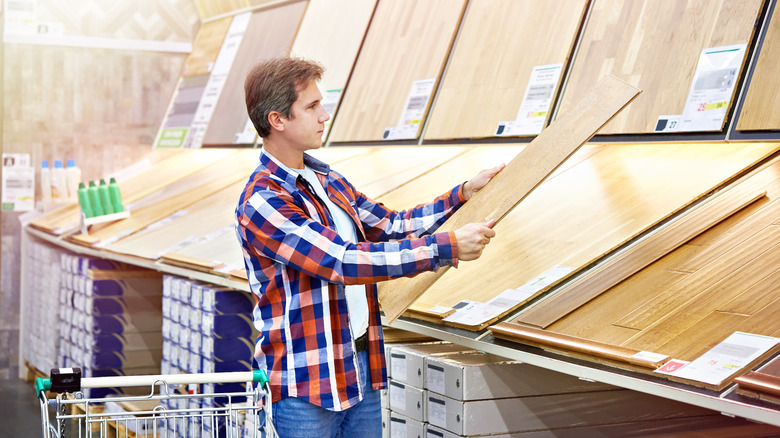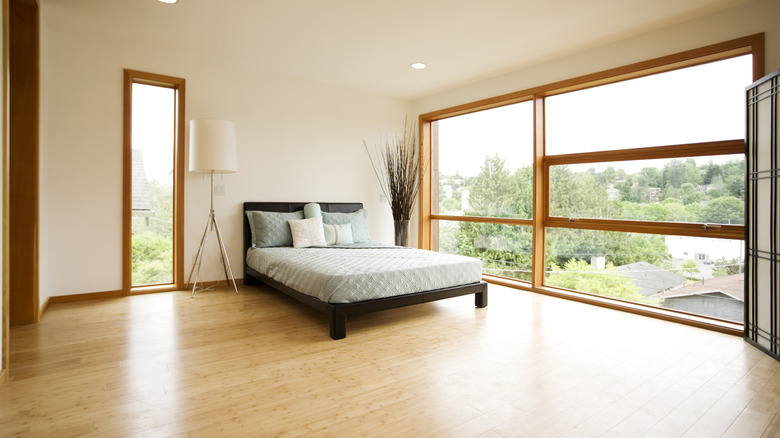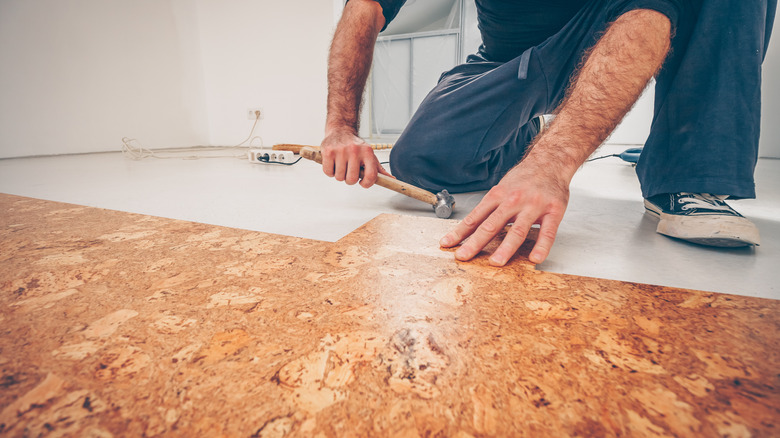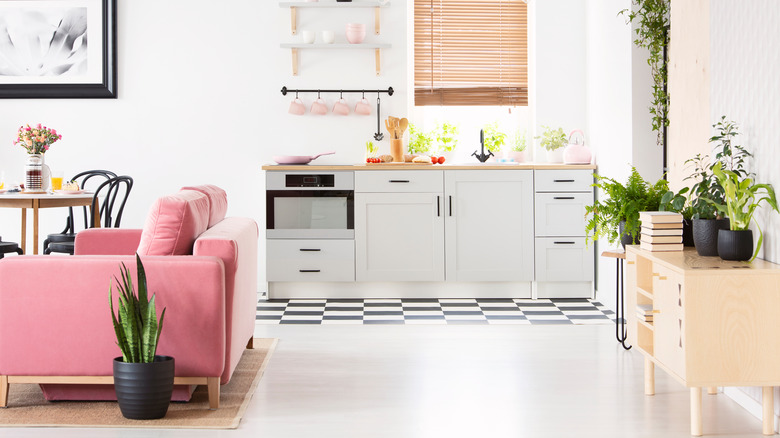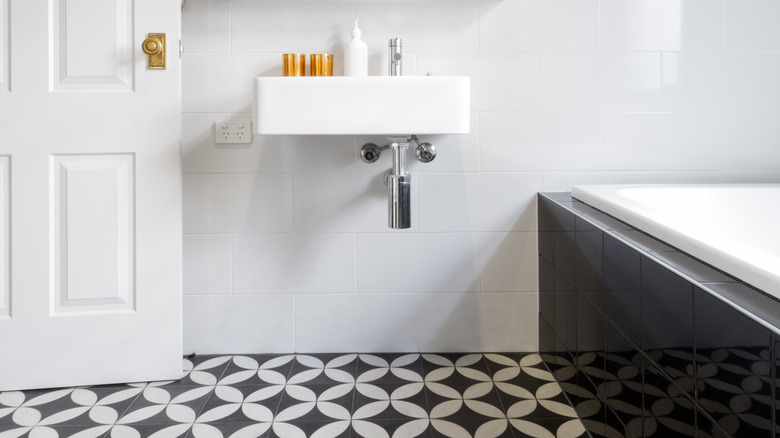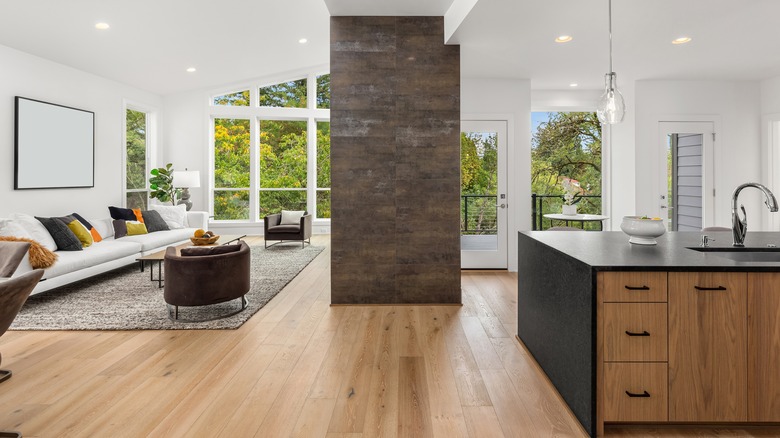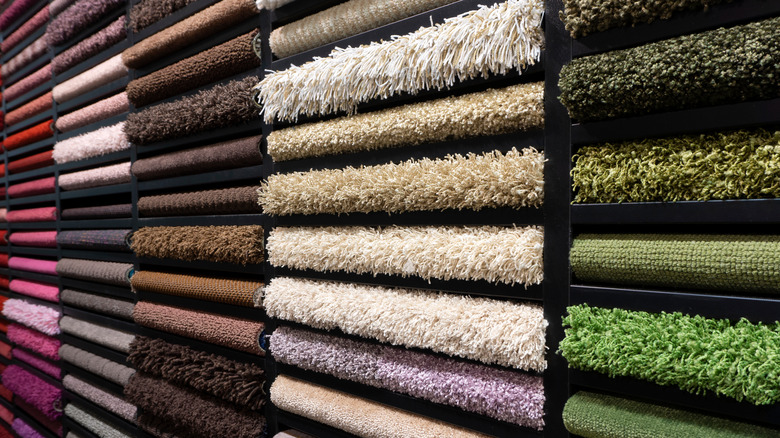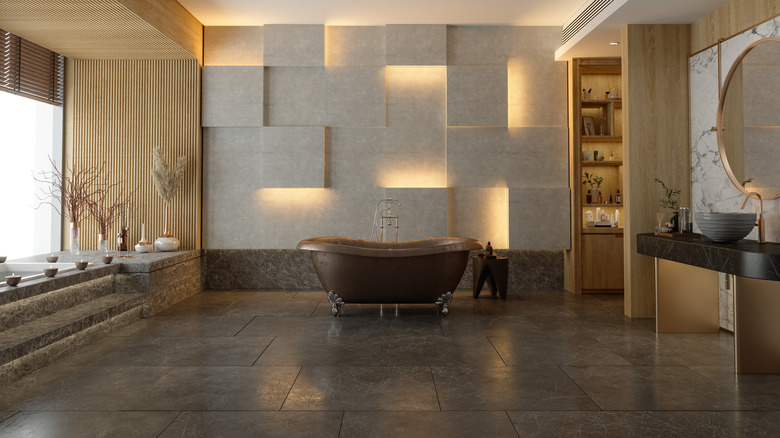Non-Toxic Flooring Options You Can Feel Good About Installing
You wouldn't immediately assume that your floors are leaching harmful toxins into the air, but these hidden dangers are found in several types of common materials used in homes all over the country. Expert teams, such as EnviroKlenz, which are dedicated to creating safe and nontoxic spaces for humans and pets, have raised concerns about the materials and methods of installing popular flooring types, pushing consumers to search for alternatives. Thankfully, other flooring experts have studied the effects of these harmful materials on people and the environment and have worked to create better products, such as bamboo and natural linoleum that don't off-gas, which means chemicals releasing in the air as fumes.
One common example is carpeting. Thick, plush flooring may seem like a warm way to cozy up your living areas and bedrooms; however, this popular choice can harbor hidden dangers. Certain fibers and fabrics can accumulate bacteria, pollen, debris, and other germs that stick around even with frequent vacuuming. In addition, the glues and plastics that are used to manufacture and install carpets can off-gas for years, which exposes you and your family to toxins that you breathe in without noticing.
Another common choice to avoid is vinyl flooring, which is often made with PVC (polyvinyl chloride), which is crafted with additives such as phthalates, lead, and flame retardants. These materials and chemicals pose a danger to our health and the environment, even being linked to certain cancers, especially when they're installed in areas that aren't ventilated well. Whether you work remotely, spend all of your time indoors, or simply want to feel good about your family home, it's important to recognize the dangers of toxic materials, particularly in your flooring.
How to choose a non-toxic option
Choosing a flooring option that checks all of the boxes can be a challenge, especially when considering the vast number of brands and types of flooring available. To understand non-toxic flooring, it's important to grasp why some options are harmful. The biggest factor to consider is Volatile Organic Compounds (VOCs). These compounds are found in nature but they are more commonly found in products such as paint, cleaning products, plastics, and other synthetic materials. They're dangerous to have in your home because they release and impact your air quality. This process is not always immediate and can occur slowly over the course of several years, which can pose health risks if you're breathing them consistently.
Various materials and brands have products available that do not contain VOCs and are therefore sound non-toxic options. These products are easily identified when they have been researched and credited by LEED, SCS Global Services, and more. LEED stands for Leadership in Energy and Environmental Design and is the rockstar of green building ratings. It's the global badge of honor for buildings that are not only eco-friendly but also healthier and more efficient. Additionally, SCS Global Services is a third-party organization that does all of the research for you and carefully evaluates brands. When certain products meet strict criteria, the company doles out certifications such as FloorScore and Sustainable Carpet Certification to share the very best products that you'll feel good about installing in your home.
Prefinished bamboo
Bamboo has been growing in popularity over the years as a material that is more sustainable and therefore better for the environment. However, it can also serve as an excellent non-toxic product that looks and feels high quality in your home. Bamboo can replace vinyl and engineered wood floors in many situations as it has a similar appearance and easily snaps together for simple installation. Prefinished bamboo flooring means that it is sanded and finished at the factory and not in your home where dust, dirt, and particles can be released into the air. Traditional bamboo flooring is the best option as it's not bonded and doesn't contain fillers or other layers, which means you can rest easy when it comes to this simple solid material.
Bamboo flooring is not only great because it's sustainable and non-toxic, but it's also durable, odorless, and easy to clean. When selecting bamboo flooring it's important to choose a high-quality product that hasn't been made with urea formaldehyde, which can off-gas in your home. When selecting a bamboo product, the grading is less reliable and you should focus more on whether it's FloorScore certified to ensure that it's been thoroughly researched and vetted. For example, Ambient is a company that provides a wide range of bamboo flooring that is thoroughly tested each and every year to show that there's zero off-gassing and the product is safe for your home. For an even more secure experience, make sure your floors are installed with just nails and staples, rather than glue. However, you might want to reserve this job for the professionals, as foregoing glue can make the task a bit more challenging. If you don't want to skip glues and adhesives, there are non-toxic products available that don't contain harmful ingredients and chemicals.
Natural cork flooring
Cork goes way beyond sealing your favorite wine bottle. This type of flooring is made from the bark of cork trees and even utilizes the scraps that accumulate when making bottle corks. Because cork trees do not need to be cut down to harvest the bark, it's a more sustainable natural option that will look and feel fantastic in your home or workplace. The bark is ground up and shaped to create flooring tiles, planks, and more. When you choose a natural product that hasn't been created using synthetic agents and resins, then you have an excellent, comfortable, non-toxic flooring option that can have a warm, natural appearance. Natural cork flooring will not off-gas harmful toxins, it's hypoallergenic, and the naturally occurring substance, suberin, in cork helps keep pests away. With this option, you don't have to worry about bacteria, pet hair, dust, or dirt accumulating in the flooring, as it's sealed and protected before installation.
Not all cork is created equally. Certain companies still use harmful sealers to waterproof cork flooring and toxic glues and adhesives to install the tiles and planks. It's important to check with the manufacturers to see what binders are used when creating the cork flooring. FloorScore certification is always a good jumping-off point for quality options. For example, Capri Collections offers two options that are FSC® certified. Eco-Clicks Cork floating floor and Mediterra 2.0 cork floor tile come in a variety of shades and textures to suit all of your flooring needs. These tiles or interlocking planks come prefinished with five coats of non-toxic sealer, which means you can avoid harmful waterproofing layers.
Natural or real linoleum
Natural linoleum has been used over the years in homes, schools, commercial spaces, and more, dating all the way back to the 1860s, but it doesn't always get the recognition that it deserves. This product is an excellent non-toxic option as it's made of bio-based, natural materials, such as linseed oil, wood, jute, and cork flour. These materials are much safer and better for the environment, especially when compared to the plastics, such as polyvinyl chloride, that make up synthetic linoleum that's commonly sold in home improvement stores as sheets or tiles. In addition to being a more natural material, real linoleum is a versatile product that is resilient, durable, flexible, and available in an endless number of colors. The natural components are also anti-bacterial, which will help make the air in your home feel cleaner than ever.
To feel good about installing this product in your home, it's important to find a product that is made from the right materials. A trusted brand that checks all of the boxes is Marmoleum by Forbo Flooring Systems. Using this product can create a sleek, finished look in your home that opens the door for creativity because of the color varieties. Natural linoleum is available in various forms from tiles to planks; however, you'll need adhesive to install it. Again, it's important to choose a product, such as Sustain 1195 by Forbo Flooring NA, which is FloorScore certified and won't release harmful chemicals into the air you breathe.
Porcelain tiles
Porcelain tiles in your home can give an elegant and sophisticated appearance, and it's also a top-tier non-toxic option. Most flooring is made with harmful chemicals such as formaldehyde, volatile organic compounds, or products made from petroleum, such as vinyl composition tiles, which are commonly used in commercial spaces but ultimately contaminate the air for years. These harmful components can be found in everything from bonding agents, sealants, adhesives, and more, all of which can cause health concerns. In comparison, porcelain tiles are made of natural components and have a long list of other pros to consider. This option is hypoallergenic and small particles of dust and dirt cannot absorb or get embedded into the non-porous surface. The smooth tiles are also completely waterproof, which means you won't have to worry about mold growing or hiding out.
Most porcelain tiles are already considered non-toxic because they don't contain VOCs, but it's always a good idea to look for brands that are LEED-certified or guaranteed non-toxic, even the sealers and protective top coats. The real trick to creating a non-toxic space in your home with porcelain tiles is to research the grout. Choose a grout that is not cement-based, which can deteriorate and break down over time and release toxins into the air. The same can be said about certain epoxy and resin grouts, which can also cause problems if it's not sealed properly. The good news is that several companies offer non-toxic grout options, such as The Tile Doctor, which are not corrosive and have no VOCs. Cutting out harsh chemicals doesn't mean you have to sacrifice style and sophistication, especially with the endless porcelain tile options.
Natural hardwood flooring
Hardwood flooring that hasn't been engineered is made from natural materials, mainly trees that drop their leaves every year, as they are sturdy and resilient. Hardwood planks do not contain VOCs and rank high on the list of non-toxic flooring options. However, hardwood flooring is often treated with finishes, sealers, and layers of chemicals to make them more scratch- and water-resistant. This is also the case with engineered wood floors and certain vinyls. By choosing natural hardwood flooring and the right top coats, you can create a safe and inviting space in your home.
To make the most of this non-toxic option, it's best to purchase prefinished hardwood flooring, even though the wood itself isn't harmful. Prefinished wood floors are sanded and treated prior to installation. However, this means that the wood will be finished and sealed at the factory and you'll need to inquire about the products they use to ensure it's toxin-free. Wood oils are often a much safer option when it comes to protecting your hardwood floors. Brands such as LEED Finish by Heritage Natural Finishes meet specific requirements for indoor air quality and still get the job done. Monocoat Natural Oil Finish is another option that has no VOCs and is plant-based.
Non-toxic carpet
Carpeting is a cozy addition to most houses, yet it has a bad reputation for harboring dust and bacteria deep in the fibers, which can be difficult to remove. With normal wear and tear, the particles can release into the air causing allergies and respiratory discomfort. In addition, some synthetic carpets are made with nylon fibers and polypropylene backing, and the padding and adhesives also contain harmful toxins. After installation, the chemicals and components can break down and leach into the air for years. Non-toxic options are made with safer materials that are more natural and won't release toxins even after years of wear and tear.
Several non-toxic carpet options are available, although they're hardly as common or available as synthetic products. Nature's Carpet and similar companies' products are made from more natural materials, such as 100% undyed wool from New Zealand and Europe. Chemical adhesives are swapped out for natural jute and rubber to complete the products, and the wool is soft and comforting. Overall, there are no chemical additives and the carpets are biodegradable and better for the environment. They also tend to use shorter fibers that are less likely to harbor dust. Similar to FloorScore, the Sustainable Carpet Certification outlines the criteria that determine the economic, environmental, and social impacts of the products and can help you choose a rug that will make you feel good about your home.
Natural stone flooring
Natural stone flooring, such as marble, slate, and granite, is one of the smartest options for homeowners who are searching for non-toxic flooring that is both durable and aesthetically pleasing. Unlike other flooring materials like vinyl or carpeting, natural stone is sustainable and less toxic because it does not emit harmful chemicals into your home during installation or afterward. Stone tiles and flooring are sourced from quarries around the world and mined straight from the earth, making it a natural and renewable resource. The stone used in natural stone flooring doesn't require the use of harsh chemicals or synthetic materials during the manufacturing process, making it a safer and more eco-friendly option for your home.
If you're interested in installing natural stone flooring in your home, there are a few things to keep in mind. Firstly, it's essential to ensure that the subfloor is level and free from any moisture or dampness. This will help to prevent cracking and the breakdown of the stone. In addition, you do not want hidden mold or mildew under your floors, as it will decrease the quality of the air in your home and is a health hazard. Finally, you'll need to select a non-toxic grout and sealer to keep your home free of harmful chemicals. Certain natural stones are porous and therefore may need to be sealed to protect them from moisture. Although non-toxic sealers are more difficult to find, it helps to search for those that are LEED-certified and otherwise transparent about ingredients. Ecos Paints, for example, offers non-toxic, no VOCs stone and tile sealer that will help keep your floors protected and your home free of toxins. Stone Technologies, Corp. also has stone sealer available that is made without harmful chemicals that you can feel good about.
